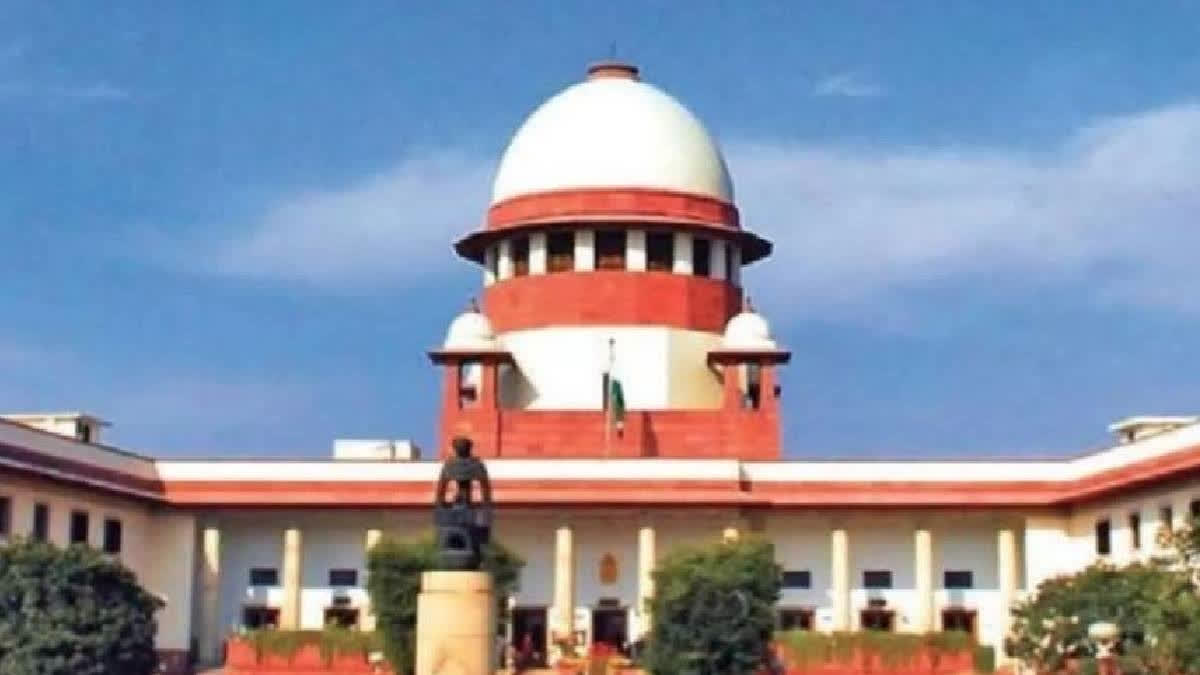New Delhi: The Supreme Court Tuesday said it cannot issue a blanket stay on proceedings before different courts related to challenging the validity of various provisions of the Places of Worship Act, 1991, while allowing the central government time till October 31 to file a response on a bunch of petitions.
Solicitor General Tushar Mehta, representing the Centre, submitted before a bench headed by Chief Justice of India D Y Chandrachud and comprising justices P S Narasimha and Manoj Mishra said: “I'm conscious of the fact that I have sought time for this before...but it is under consideration (Centre’s response on petitions). Central government needs more time to file...”
The law in question mandates maintaining the status of religious places as prevailed on August 15, 1947. The top court was hearing pleas challenging the validity of certain provisions of the Places of Worship (Special Provisions) Act 1991. After hearing Mehta’s submissions, the top court said having regard to the ramifications of the case, let a counter be filed by the Centre till October 31, 2023.
During the hearing, the bench observed that the parties to each concerned case had to seek a stay from the concerned court by pointing out that the Place of Worship Act is in operation, and also the law has not been stayed by it. The bench told advocate Vrinda Grover, representing one of the parties, “There is no stay on the Act at all. You have to point out before the court that there is no stay. Mere pendency of the plea (the challenge to the validity of provisions of the Act) is not a stay”.
The top court made it clear that it cannot stay proceedings before courts without knowing the nature of proceedings. Grover had requested the court to consider a plea for a stay of proceedings and said, “There is an interim application seeking a stay. Across the country matters are being litigated while the Act is in place”.
Grover submitted that the Place of Worship Act applies as of today. The top court said it cannot grant blanket stay on proceedings launched in various courts across the country related to religious places. District courts have entertained the matters related to Kashi Vishwanath temple and Krishna Janmabhoomi.
Subramaniam Swamy, one of the petitioners, submitted that the centre is taking adjournment after adjournment and urged the court to keep the matter for a final hearing. To which the top court said, "let us see the affidavit by Centre first".
On March 12, 2021, a bench headed by then Chief Justice S A Bobde had sought the Centre’s response on the plea filed by advocate Ashwini Upadhyay, one of the petitioners in the matter, challenging the validity of certain provisions of the law.
Upadhyay’s plea said, “The 1991 Act was enacted in the garb of ‘Public order’, which is a State subject [Schedule-7, List-II, Entry-1] and ‘places of pilgrimages within India’ is also State subject [Schedule-7, List-II, Entry-7]. So, the Centre can’t enact the Law. Moreover, Article 13(2) prohibits the State to make law to take away fundamental rights but the 1991 Act takes away the rights of Hindus Jains Buddhist Sikhs to restore their ‘places of worship and pilgrimages’, destroyed by barbaric invaders”.
It further added, “The Act excludes the birthplace of Lord Rama but includes the birthplace of Lord Krishna, though both are incarnations of Lord Vishnu, the creator and equally worshiped throughout the word, hence it is arbitrary”.
Also read: Big setback for AAP: SC refuses to stay Delhi ordinance, issues notice to Centre



